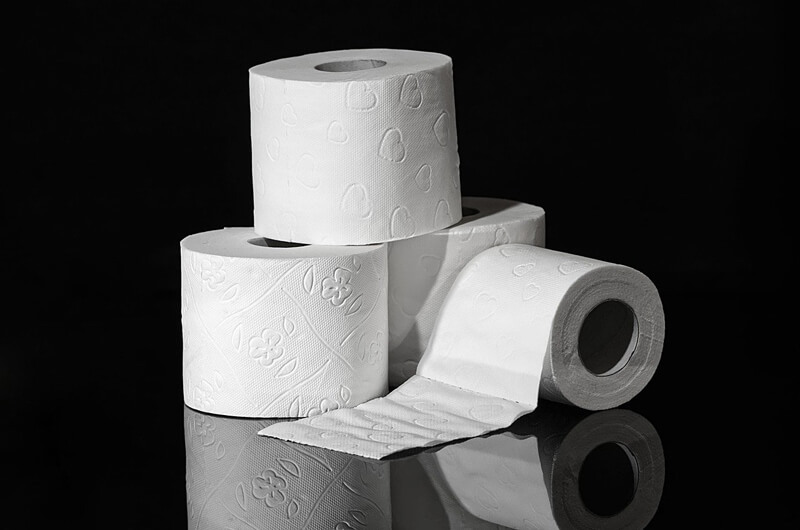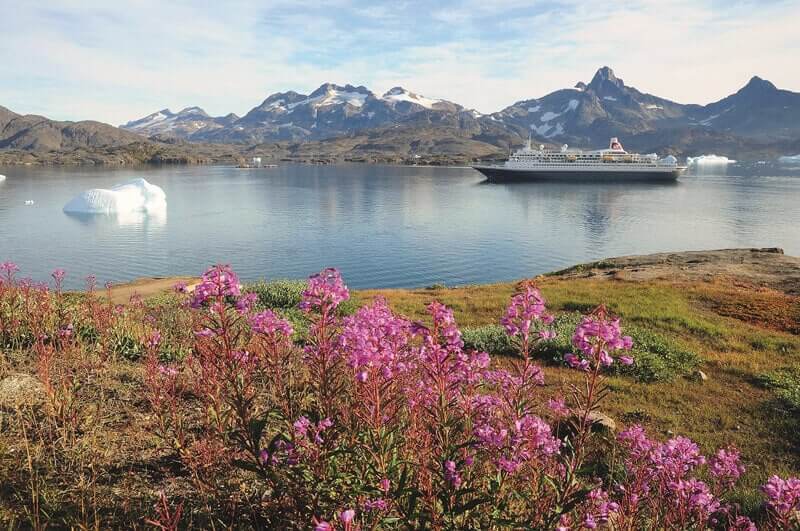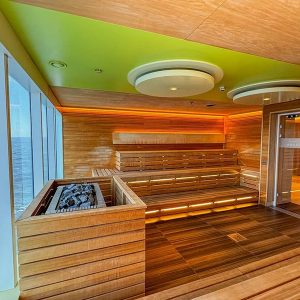Simon the Plumber had just returned from the suppliers with a replacement pump for the shower, when there was a knock on the front door. It was the chap from next door but one.
The chap from next door but one moved in with his wife and family around fifteen years ago. Until he knocked on my front door, I didn’t even know what he looked like. They’re the sort of folk who “keep themselves to themselves”, which is fine by me.
But the chap from next door but one, who proved to be very affable and named Jon, wanted to let me know that he and his wife were more than happy to pick up any shopping I needed, and run vital errands.
I thanked him, returned to my desk, and was about to get on with writing this article when the door was knocked again. This time it was Robin, from No. 36, whom I do know, as you know neighbours in that casual, smiling-as-you-pass, “nice weather for the time of the year”, kind of way.
Like Jon, he left his mobile number in case I needed help.
 Though there are some unbelievably stupid, self-centred people about – the kind who truly believe that industrial quantities of lavatory paper will shield them from all harm – it is well to remember that there are also really caring and thoughtful folk in this world and, almost certainly, some of them live in your neighbourhood.
Though there are some unbelievably stupid, self-centred people about – the kind who truly believe that industrial quantities of lavatory paper will shield them from all harm – it is well to remember that there are also really caring and thoughtful folk in this world and, almost certainly, some of them live in your neighbourhood.
Incidentally, I called Simon the Plumber yesterday morning when the shower pump started screaming in agony and the shower dropped to a dribble. The fact that he was able to get to me so quickly was, I thought, a little miracle.
Unfortunately, it transpires that young Simon is having a thin time of it right now, as are many self-employed tradesmen. I suspect mine might have been the only job on his schedule for that day.
Though he is concerned about “the Virus”, his greater worry is not being able to earn the money to pay the bills. In that, he is not alone.
We talked on the doorstep for a few moments before he left. Talked about how Coronavirus is affecting all aspects of our lives. Talked about getting through it somehow or other, not just as individuals, but as a society and a nation. Talked about what life might be like after it has gone.
That may sound highfalutin, but it wasn’t. It was a simple assessment of how life is changing daily, and what, if anything, we can do about it.
Many commentators are currently summoning up “the Dunkirk sprit” or “the Blitz spirit”. I do wish they wouldn’t. In the first place, Dunkirk was a defeat which was somehow spun into a massive victory, at a time when the art of spinning a story was in its infancy.
As for the Blitz, the legend is of brave Cockneys taking it on the chin and emerging from the rubble each morning with flat caps at a jaunty angle and a quip on their lips. The truth is that the crime rate rose by around 50 percent during the war, looting was rife and hundreds, if not thousands, of Eastenders decamped to Epping Forest where they swiftly became feral.
Still, if those old legends help keep up our spirits today, who am I to quibble?
Let me, instead, dwell on two aspects of our present situation. One certainly applies to our generation. The other applies to travellers of all generations.
Speaking as one who is at the top end of our age range, I have lived my entire life under some form of threat. As a child, it was that we would be invaded by the Nazis and, when that threat receded, that they would bomb the house in which I lived with my Mum and Dad and my Auntie and Uncle and my two cousins. They did, but fortunately they missed, though not by much.
Post war, the threat from the Nazis was replaced by the threat from the Soviet Union, and a possible nuclear holocaust. It was a relief, when the Soviet Union collapsed, to discover that their armed forces were nowhere near as terrifying as we had been led to believe – rather like the chubby chap behind the curtain at the climax of “The Wizard of Oz”.
The threat of nuclear war was still there, of course, but greatly diminished.
Then along came the IRA, with hatreds that should have been consigned to the dustbin of history long ago, but which, they felt, entitled them to kill people. After them came Al Qaeda, ISIS and assorted psychopaths with medieval mindsets who believe that religion – or their warped version of it – also justifies the murder of innocent people.
So, in a way, it’s been “one damned thing after another” during my 84 years, with side orders of Thalidomide, Ebola, SARS, Swine Fever, Foot and Mouth, and Mad Cow Disease, which we also called BSE – because Bovine spongiform encephalothapy was too much of a mouthful.
Add on the assortment of illnesses to which I succumbed, and others which, in time, affected my wife and children, and you could be forgiven for concluding that my life has been one long litany of fear and sorrow.
But, of course, it hasn’t. It has been, and still is, joyous and marvellous and exciting and, sometimes, even adventurous. True, it has been sad, at times gut-wrenchingly so, but if bad stuff doesn’t happen you have no way of appreciating the good stuff.
So for me, and, I suspect, you, too, evoking a distant war in order to keep up our morale is quite unnecessary. If my experience is typical – and I truly believe it is – then the good stuff is happening where you live, human nature is proving to be kinder and more considerate than we thought, and we are, at last, “all in this together”.
Moving on to my second point, it is to note that “the Virus” has revealed weaknesses in the wider world. In Europe, for example, the mantra of an “ever-closer Union” and the vital necessity of free movement have been blown out of the water as borders are sealed and individual countries look out for themselves. When the crisis has passed, can that all go back to how it was before?
As international supply chains are disrupted, can we go back to buying cheap stuff, made in some Far Eastern sweatshop, just for the sake of saving a few bob on a dress, a child’s toy or some electronic gadget we probably don’t even need? Can we, maybe, pay a little more for something that is made closer to where we are? If only for the sake of a reduced Carbon Footprint.
Indeed, can we all go back to travelling the world as we did, without learning lessons from what is happening right now?
 At a brochure launch in London recently, Fred Olsen Cruise Lines made much of the fact that its ships are small. The company is aware that, apart from any threats to their health, people are becoming increasingly concerned at the effect these “superliners” are having on the environment.
At a brochure launch in London recently, Fred Olsen Cruise Lines made much of the fact that its ships are small. The company is aware that, apart from any threats to their health, people are becoming increasingly concerned at the effect these “superliners” are having on the environment.
So, could this be the moment we decide to return to smaller ships for our cruising holidays, once the crisis has passed?
The moment when we decide to take fewer flights? When airlines increase the practice of code sharing to get more people onto less aircraft? When the aviation industry steps up its efforts to build lighter, more efficient, planes, and invent the electric fuel cells with which to power them?
Could this be the moment we decide to reject the overcrowded “honeypots” on the tourist map, and spread ourselves wider and thinner in those countries which desperately need the income and jobs that tourism provides?
These are questions we should be asking ourselves, because right now we have time to pause and consider them. I’m fairly sure airlines, cruise companies, tour operators and others are doing so, as they plan for the world of travel that will emerge from our present situation.
Like all those other threats and dangers I mentioned, both natural and man-made, this Coronavirus crisis will pass and life will get back to normal.
Wouldn’t it be great if it was a new version of normal? A kinder, more considerate, more understanding version, which demonstrates that we have spent this time of “social disengagement” working out how to put right aspects of life that we have got wrong.
I think it was Winston Churchill who said, “never let a good crisis go to waste”. Politicians sometimes interpret this as doing something unpopular when the public’s attention is otherwise engaged (“a good day to bury bad news”). A better interpretation is, I believe, using a crisis as a springboard to get us to a better place.
At least we have plenty of time to think about all this, as we sit quietly at home while the world changes around us. Changes, I hope, for the better.
 P.S. I have a couple of updates on things I mentioned in my last article in this “Now and Then” space. The first is that the screeching harpy who occasionally reviews the newspapers on the Sky News Channel was at it again a couple of nights ago. Having spoken of “millions of people dying” she actually had a row with the chap sitting beside her, which was an interesting development.
P.S. I have a couple of updates on things I mentioned in my last article in this “Now and Then” space. The first is that the screeching harpy who occasionally reviews the newspapers on the Sky News Channel was at it again a couple of nights ago. Having spoken of “millions of people dying” she actually had a row with the chap sitting beside her, which was an interesting development.
Of course, I shouted at her, as I usually do. But I hope they keep asking her to appear, as the emotional release she engenders is doing me a power of good.
The second update relates to that bottle of 1978 Vintage Port I discovered in the shed. You will be pleased to know that it tastes wonderful – almost divine. If I need some “Blitz spirit”, I have it to hand.











